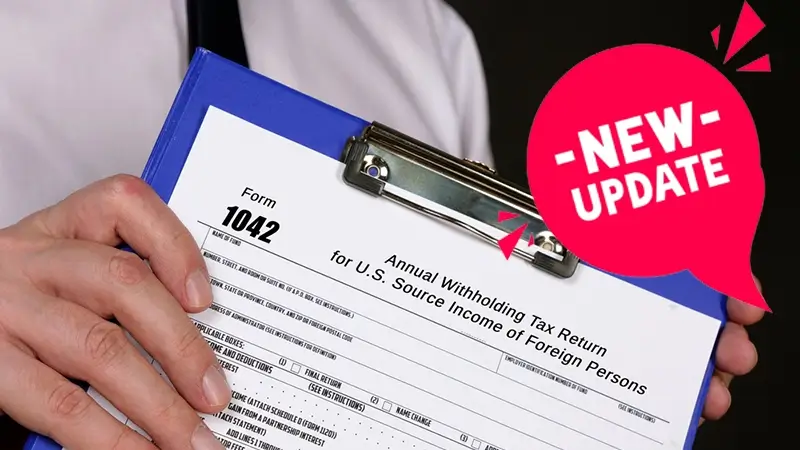How to Get the Most Out of Your Income Tax Refund
Who doesn’t love a larger income tax refund? In this blog post, we’ll dive deep into the world of tax refunds and explore various strategies to get...
Partnerships file an information return to report their income, gains, losses, deductions, credits, etc.
A partnership does not pay tax on its income but "passes through" any profits or losses to its partners. Partners must include partnership items on their tax or information returns.
Beginning January 1, 2024, partnerships are required to file Form 1065 and related forms and schedules electronically if they file 10 or more returns of any type during the tax year, including information, income tax, employment tax, and excise tax returns. Certain exceptions apply.
All domestic business partnerships based in the United States, such as general partnerships, limited partnerships, and limited liability companies (LLCs) classified as partnerships with at least two members, must submit Form 1065 every year. If a partnership doesn't receive income or incur any expenses that would allow it to claim deductions or tax credits, it is not required to file Form 1065.
Similarly, religious or apostolic organizations exempt from income tax under Section 501(d) must report their taxable income using Form 1065. This income must be allocated to members as a dividend, whether distributed or not. Alternatively, the organization may use Form 1120, U.S. Corporation Income Tax Return, for this purpose.
When a foreign partnership earns gross income that is connected to a trade or business conducted within the United States (or has gross income derived from sources in the United States), it is generally required to file Form 1065 to report its income and how it will be distributed to partners. This obligation applies even if the partnership's main office is located outside the United States or if all its members are foreign individuals. Foreign partnerships that must file Form 1065 typically need to report all relevant foreign and US partnership items on the form.
Two exceptions for foreign partnerships are required to file Form 1065:
Exception for Foreign Partnerships with US Partners:Different types of business structures exist, and they are all organized at the state level. It's important to note that designations like an S-corp are not business structures themselves, but rather tax elections made on federal taxes. This means that rules and regulations regarding business structures may vary by state, with some structures receiving little attention at the federal level.
The IRS recognizes two types of business structures: pass-through entities and C corporations. Pass-through entities pass all their income to their owners to be taxed as the owners' income. These entities include sole proprietorships, partnerships, and S corporations. Limited Liability Companies (LLCs) are also popular business structures. Despite their popularity, the IRS generally overlooks LLCs for tax purposes. Business structure formation is governed at the state level, and the IRS has chosen not to establish a separate tax structure for LLC taxes.
Instead, LLCs have the flexibility to choose how they want to be taxed. Options include being taxed as a Sole proprietorship (one owner), partnership (multiple owners), S corporation (one or more owners), or C corporation (one or more owners).
The partnership needs to submit a Form 1065 to report the business's tax information for the year. This form is used to create individual Schedule K-1s for the partners. The partners can then use these K-1s to report their share of the partnership's income and losses on their personal tax returns.
Typically, a domestic partnership that is required to file Form 1065 (or a foreign partnership that does not meet the exceptions for filing Form 1065) must submit the form by the 15th day of the 3rd month after the end of its tax year, as indicated at the top of Form 1065. For a calendar year partnership (January to December), the deadline is March 15. However, if the tax year spans a different period, such as July to June, Form 1065 must be filed by September 15.
In cases where the due date falls on a Saturday, Sunday, or legal holiday in the District of Columbia or the state where you file your return, the IRS allows you to file your return by the next business day.
| Related Posts |
At H&CO, we have over 30 years of experience in preparing these types of income tax returns for companies in the United States. Our dedicated team of US tax experts is here to assist you with any questions you may have.
Furthermore, our extensive range of tax services includes Individual tax services, Business tax services, International tax services, SAP Business One, and Entity Management for global families and foreign investors. Please reach out to us, and one of our advisors will be happy to get in touch with you!

Who doesn’t love a larger income tax refund? In this blog post, we’ll dive deep into the world of tax refunds and explore various strategies to get...

New electronic filing requirements apply to Form 1042 beginning with tax year 2023 forms filed in 2024. For tax year 2023, electronic filing of Form...

For businesses and individuals engaged in cross-border activities, the treaty provides relief from double taxation, promotes trade, and encourages...
.webp)